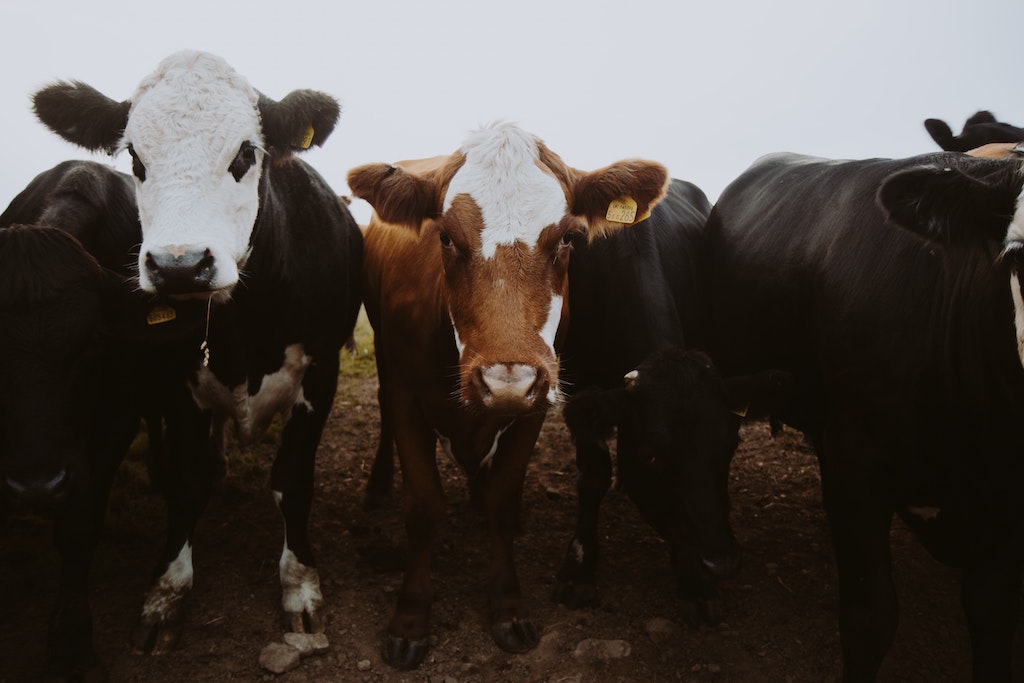4 Mins Read
Following the landmark IPCC report declaring a “code red for humanity”, a new grassroots campaign is calling on world leaders to take action on one of the biggest drivers of the climate crisis: our food system. The Plant-Based Treaty is urging governments around the world to cooperate and reach an agreement to promote a radical shift away from animal agriculture to slash emissions.
Launched earlier this month, the new Plant-Based Treaty is calling on world leaders to take action to fix the global broken food system that is driving the climate emergency. While eliminating fossil fuels is a must, experts and scientists have repeatedly warned that shifting to renewables alone will not be enough to stem the worst impacts of climate change.
Without a radical transformation of our broken food system, at the heart of which is unsustainable animal agriculture, there is little hope in meeting the Paris Agreement goals.
Plant-Based Treaty
In light of the IPCC’s latest report and based on previous scientific findings, the new Plant-Based Treaty hopes to get world leaders to the discussion table to usher in a plant-based food system to dramatically slash global emissions. It is inviting 10 million people across 50 cities around the world to endorse this call to action by 2023.

“This report makes it clear that rapid, strong and sustained reductions in greenhouse gases are needed now. We cannot wait two, five or ten years. It has to be done now,” says Nicola Harris, director of communications of the organisation.
“We need to transform to a plant-based food system as a matter of urgency if we are to reduce methane to safe levels and slow global warming.”
Animal-based foods represent the most carbon-intensive and resource-hefty products driving the majority of the food system’s emissions, primarily due to methane. Globally, livestock farming makes up nearly a fifth of the world’s GHG emissions and 70% of arable land use.
“According to the IPCC 6th assessment report, we need to swiftly address methane, and we believe the Plant Based Treaty can contribute to the methane agreement that scientists are calling for,” writes the Plant-Based Treaty.

Three ‘R’ principles
The campaign wants world leaders to create a new treaty to transform the food system, centred on three “R” principles, as a companion agreement next to the Paris accord. These three principles include Relinquish, Redirect and Restore.
“The Plant Based Treaty (along with the Fossil Fuel Nonproliferation Treaty) provide a logical pathway to the solutions needed now,” says campaign coordinator Anita Krajnc.
Relinquish calls for the end to any expansion of the animal agriculture industry and its role in fuelling deforestation. Redirect encourages a shift away from animal-based foods, such as meat and dairy, towards plant-forward diets. Finally, Restore urges for the restoration and protection of key ecosystems for Earth’s biodiversity.
“We hope that national governments see the support behind the values and principles of the Plant Based Treaty campaign and use it as inspiration to start to negotiate vital changes in our food system,” the Treaty writes.

Diet change to solve climate change
More attention has been paid to the role of our dietary choices and its impact on the planet in recent years. One paper released ahead of the IPCC report and signed by 14,000 leading scientists around the world said that a global carbon price on high-emissions products, including meat and dairy, would be crucial to bringing GHG emissions down.
A separate report says that if we did change our food system, along with ushering in renewable energy and electrifying transportation, we could cut GHG emissions upwards of 90% by 2023.
Much of the scientific evidence showing the sustainability of plant-based diets will be spotlighted in an upcoming documentary narrated by Kate Winslet. The film, Eating Our Way to Extinction, is set to debut in September, and will be focusing on the true cost of our food choices.
Lead image courtesy of Pexels.




